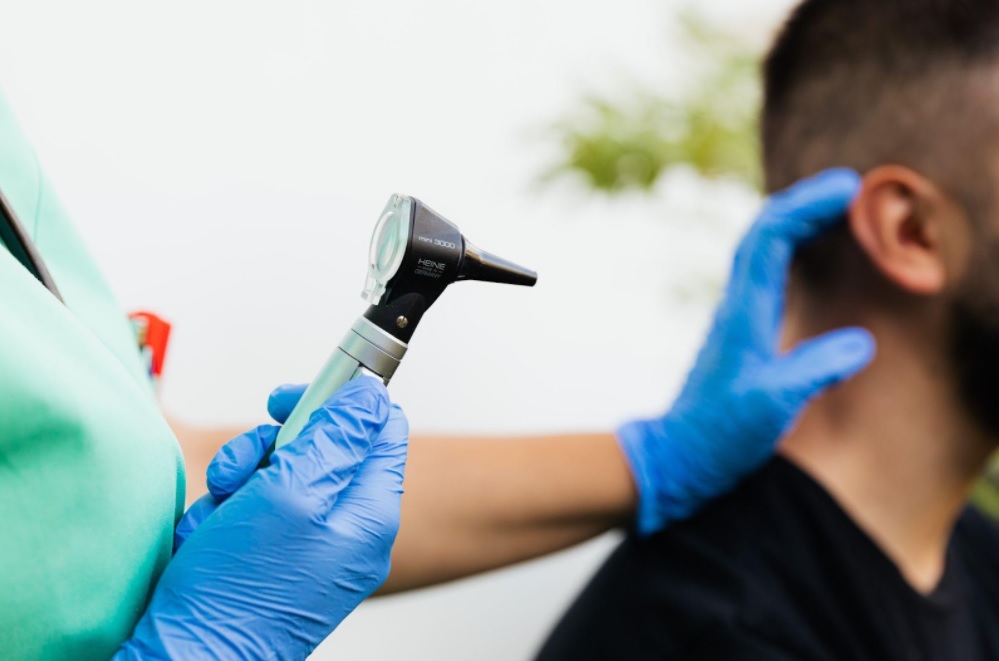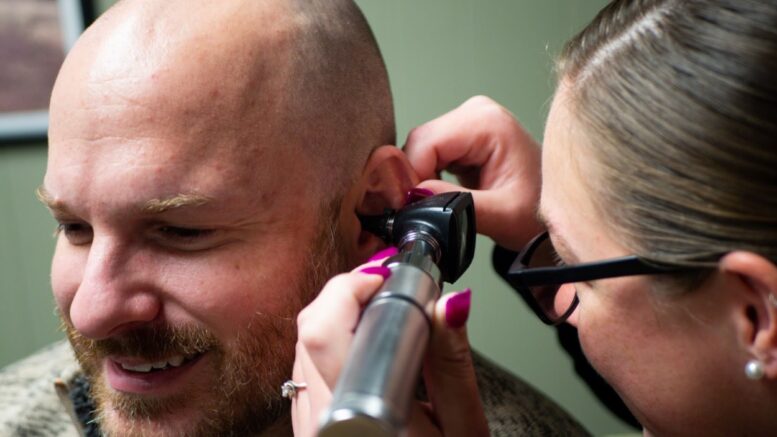Do you ever feel like the world around you is a bit muffled and distant? Or do random sounds startle or overwhelm you seemingly out of nowhere? It may be that your hearing is impaired. With so many possible underlying causes, it can be hard to pinpoint what’s causing your difficulty in hearing. To help guide you through the process of understanding your hearing problems, this blog post will go over 6 common causes of hearing difficulties. You’ll learn more about infections, chronic conditions, hormonal changes, and other potential culprits – each with its own set of warning signs and treatments available. So if any form of impaired hearing has been haunting your life for too long, read on!
An Overview of Hearing Loss and Its Causes
Hearing loss is a common, yet often misunderstood health issue. Its effects are often underestimated, but the reality is that over 48 million people in the United States experience hearing loss to some degree. If you notice hearing loss, then you should visit hear.com or another place close to your home for a free consultation and hearing check. There is no need to feel ashamed – people of all ages can be affected by hearing loss, from infants to the elderly. While many contributing factors can contribute to hearing problems, some of the most common causes include exposure to loud noise and/or hazardous chemicals, ear trauma or infection, long-term use of certain medications, and genetic predisposition. By understanding these six most frequent influences on hearing health and working with healthcare professionals and protective products when needed, individuals have the power to better safeguard their ears against damage.
Natural Age-Related Hearing Loss
When it comes to hearing loss, age plays a major factor. Many people experience natural age-related hearing loss – sometimes referred to as “presbycusis” – as they get older. Hearing slowly reduces over time, but there are steps one can take to slow the decline and help maintain better hearing for longer. It is essential for those who are at risk of age-related hearing loss to wear ear protection when exposed to loud noises or environments, limits their exposure to high-volume activities and events, gets regular physical checkups (including ones specifically devoted to hearing), and if needed, speak with an audiologist about solutions such as protective devices or using amplification technology like a hearing aid. Taking action early on can help protect one’s hearing later in life.
Loud Noise Exposure
When it comes to possible causes of hearing problems, loud noise exposure should not be overlooked. Many of us experience the occasional rush of noise from parties or concerts, but the danger from long-term exposure to low-grade noise is often understated. Those who are regularly exposed to high-decibel environments such as factories, construction sites, and stadiums may find themselves suffering from hearing loss in later life. The good news is that protection can be easy: if you work in a loud place for extended periods, use ear plugs or sound-canceling headphones to minimize the damage done to your ears. Even if your job isn’t overly loud, using earplugs when you head out for a night on the town can protect your hearing and help you keep enjoying good music and lively conversations well into the future.
Ototoxic Medications that Impact Hearing
Hearing loss can occur when medications directly damage the delicate mechanisms of the inner ear, which can lead to permanent hearing loss that worsens over time. Although some ototoxic medications may provide therapeutic benefits, they also carry additional risks and should only be administered with careful monitoring. Some common classes of drugs known to have potential ototoxic effects include certain antibiotics, cancer treatments, certain types of painkillers, and even some illicit drugs such as cocaine. Therefore, it is important to consider hearing concerns if any of these medicines are prescribed or being taken without a healthcare provider’s guidance.

Ear Infections and Fluid Buildup
Ear infections and fluid buildup are two of the six common causes of hearing problems. Unfortunately, many people don’t think to have their hearing checked until they start noticing specific symptoms. Ear infections occur when bacteria or a virus infects the middle ear and are often accompanied by pain, vertigo, a fever, and more concerning symptoms. Fluid buildups in the ear – whether from allergies, an infection, or another cause – can prevent soundwaves from properly reaching the eardrum and auditory nerves. To help prevent hearing loss associated with these conditions, it’s important to pay attention to signs of an infection – like tenderness in the ear, drainage, or discharge – and speak with your healthcare provider right away if you’re experiencing any of these symptoms.
Head Injuries and Trauma to the Ear Canal
For those with a greater risk of hearing loss, head injuries can be especially dangerous. When the eardrum or structures within the ear canal are damaged due to trauma like a concussion, irreversible hearing damage can occur. Those who suffer from physical violence, face sports injuries, or have been in an automobile accident are all at a higher risk for prolonged hearing difficulties due to potentially life-altering head wounds. Therefore, receiving prompt medical care after any type of head trauma and taking preventative steps to support long-term ear health is incredibly important.
In conclusion, hearing loss is a complicated matter that can stem from many causes. While age-related hearing loss and noise exposure are often the most widely known causes, there are also other culprits to consider including Ototoxic medications, ear infections and fluid buildup, head injuries, and trauma to the ear canal. While some of these causes of hearing problems can be avoided through preventive measures such as avoiding loud noises and regular checkups with a medical professional, others may take more effort to identify and treat since they manifest in ways we may not expect. Nevertheless, by understanding all these potential underlying causes we can better guard our ears against potential damage.
